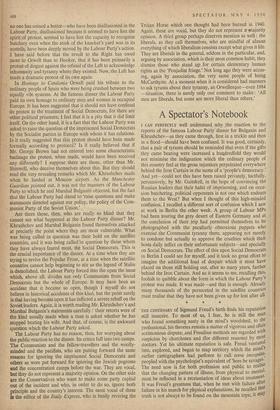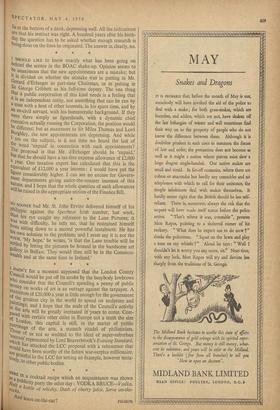THE CENTENARY of Sigmund Freud's birth finds his reputation still
insecure. To most of us, 1 fear, he is still the man who found something nasty in the mind's woodshed; to the professional, his theories remain a matter of vigorous and often acrimonious dispute; and Freudian methods are regarded with suspicion by churchmen and (for different reasons) by most doctors. Yet his ultimate reputation is safe. Freud ventured into, explored, and began to map territory which the mind's earlier cartographers had perforce to call terra incognita; peopled with the psychologist's equivalent of 'here be savages. The need now is for both profession and public to realise that the changing pattern of illness, from physical to mental' must be reflected in a reorientation of ideas about treatment. It was Freud's greatness that, when he met with failure after failure in his search for physical explanations, he recalled that truth is not always to be found on the mountain tops; it may lie at the bottom of a dank, depressing well. All the indications are that his instinct was right. A hundred years after his birth- day the question has to be asked whether enough research is being done on the lines he originated. The answer is. clearly, no.











































 Previous page
Previous page